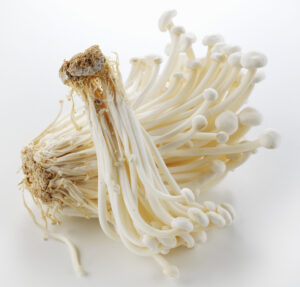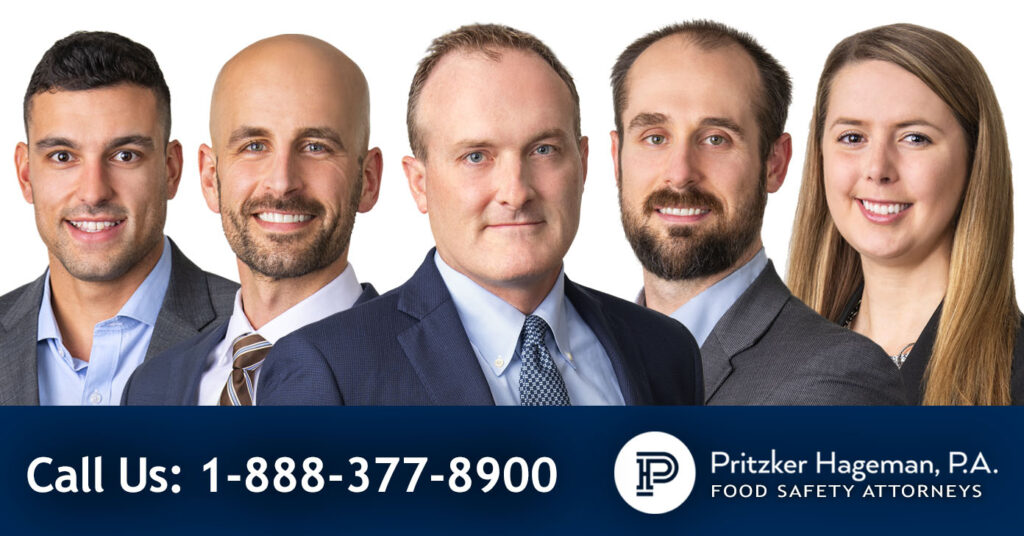On November 17, Green Day Produce of Vernon, CA issued a Listeria recall for enoki mushrooms imported from Korea. But why were they on store shelves in the first place?
Due to widespread problems with Listeria contamination in enoki mushrooms from Korea, the U.S. Food and Drug Administration (FDA) issued a countrywide import alert for them four months ago. This action essentially bans the import of all enoki mushrooms from the Republic of Korea.
Companies seeking an exemption can submit documentation that the product has been tested and is pathogen-free, but even this does not guarantee that the product will be admitted to the U.S., according to the FDA website’s information about import alerts.
Firms that meet the criteria for exemption from an import alert are added to a “green list.” But this import alert, 25-21, doesn’t have a green list. And if a Korean company did supply proof that its enoki mushrooms were pathogen-free, why did tests performed by the Michigan Department of Agriculture and Rural Development, which prompted the recall, turn up positive for Listeria?

How Did We Get Here?
Two years ago, a Listeria outbreak linked to enoki mushrooms imported from Korea sickened 36 people. Thirty-one were hospitalized, four people died. Six of the patients were pregnant women, two of whom suffered miscarriages.
After the deadly 2020 outbreak, the FDA increased its testing of imported enoki mushrooms. During the fiscal year that ended September 30, 2021, the agency found that 43 percent of the enoki mushrooms sampled from the Republic of Korea, were contaminated with Listeria monocytogenes.
And results of increased testing over a longer period weren’t much better.
From March 2020 through May 2022, state health and agriculture officials tested enoki mushrooms. purchased at retail stores. This led to 21 enoki mushroom Listeria recalls. Nine of those recalls were for enoki mushrooms from Korea. Meanwhile, during that same period, the FDA found that 31 of 93 samples analyzed were contaminated. Twelve of the 29 Korean companies that shipped enoki mushrooms, had shipped contaminated products.
“Based on the outbreak and high sampling violation rate for the Republic of Korea, FDA believes that it is extremely unlikely that contamination of enoki mushrooms with L. monocytogenes is due to an isolated incident. Further, FDA’s findings of L. monocytogenes strains with the same WGS in multiple shipments over a period of time are consistent with resident pathogens in mushroom operations in the Republic of Korea. Evidence suggests that enoki mushrooms may be a high-risk reservoir for L. monocytogenes due to the difficulty in maintaining good hygienic practices at medium-sized plants where the mushrooms are typically produced,” the import alert states.
Food Poisoning Bulletin made multiple attempts to contact the FDA for clarification on this issue but did not receive a reply before publication.
A New Outbreak
The Green Day Produce enoki mushroom Listeria recall states that the problem was “discovered after a retail sample was collected and analyzed by Michigan Department of Agriculture and Rural Development (MDARD) and revealed the presence of Listeria monocytogenes in 200g/7.05 oz. package of Enoki mushroom.” It also states that no illnesses had been reported to date in connection with the recall.
On the same day that Green Day Produce issued the recall, the Centers for Disease Control and Prevention (CDC) announced a two-state enoki mushroom Listeria outbreak. It includes one illness in Nevada and another in Michigan. Both patients have been hospitalized.
The announcement does not state which country produced the mushrooms. It also states that no recall has been issued in connection with the outbreak.





